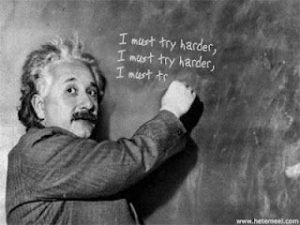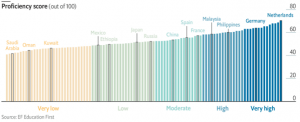Düsseldorf is an amazing city and I’m not saying this to advertise my tours, at least not only 😉 What I love so much about it is its cultural diversity. More than 35% of locals have a foreign passport and the city usually welcomes millions of international business and leisure guests each year. Before the pandemic, Düsseldorf was among the most visited places in Germany. We do have extremely popular intercultural events like our Japan-day, a day to celebrate our Japanese community, the 3rd biggest in Europa.
Many international companies have their German or European headquarters here which leads to a very international atmosphere. International trade fairs, some world-leading, take place here. Immigrants from all over the world came to stay, started businesses, opened restaurants. There are businesses and inns in which only English is spoken. I have worked as a relocation consultant for many years and met lots of people who lived a decent life in town without speaking a word of German.
Although people seem to enjoy using their school English to what they regard as visitors, multilingualism, at least when it excludes German, has still a fairly negative image in the public. The problem is not the busy expatriates living out of their suitcases always ready to leave the country. The problem was the rise of subcultural structures in cities with large populations of immigrants of the same origin in which people lived a life detached from German society, culture, and sometimes even law. It was in 2005 when the first integration courses started to address this problem, a mixture of A1-B1 German classes including 100 lessons about German culture and history, to which people were sent who lived on state support.
When the „Flüchtlingswelle“, the „wave“ of 1 Million refugees rolled into the country in 2015, the issue of learning and teaching German and German culture returned to the center of public debate, and many professionals with any kind of linguistic background were trained to become German as Second Language Teachers. This is when and why I started teaching. During my 3-month training programs, multilingualism was not mentioned once. The goal of the integration course is crystal clear: integration into German society through language skills and knowledge of German culture. Today, more than 2,5 Million people started with one of these courses which is great.
But we are facing lots of challenges. Drop-out rates are high due to the extremely diverse educational and linguistic backgrounds of participants. The pandemic stopped most of the courses as many immigrants were very afraid to attend classroom courses and didn’t have sufficient technical equipment to attend online classes. And most importantly, we still don’t get enough Muslim women to attend a course. Some cannot find a place in Kindergarten due to their lack of German. Some claim to be too busy with family duties and many are simply not allowed by their husbands to go. As discussed in the course, language is power, and language learning is empowerment.
We need to make sure we address these issues with women-only courses even in rural areas, with courses including child-care and courses with a reduced weekly workload for these women to still be able to fulfill their family duties. I mainly taught in B2 courses, a level I love as it allows for intercultural discussions, presentations, the use of literature, and many other fun activities. And to be honest I hate teaching all the grammar. But every Muslim woman who made it to B2 was reporting the tremendous positive effect of her new multilingualism. To their lives, identity, but especially to the lives of their children.
As Angela Merkel, former chancelor of Germany optimistically predicted in 2015:
„Wir schaffen das.“
References
Tabouret-Keller, Andrée (2012) Bilingualism in Europe* in Bhatia, T. K., & Ritchie, W. C. (2012). The handbook of bilingualism and multilingualism.
Bundesministerium des Innern und für Heimat. (2020, November 18). Integrationskurse. https://www.bmi.bund.de/DE/themen/heimat-integration/integration/integrationskurse/integrationskurse-node.html


